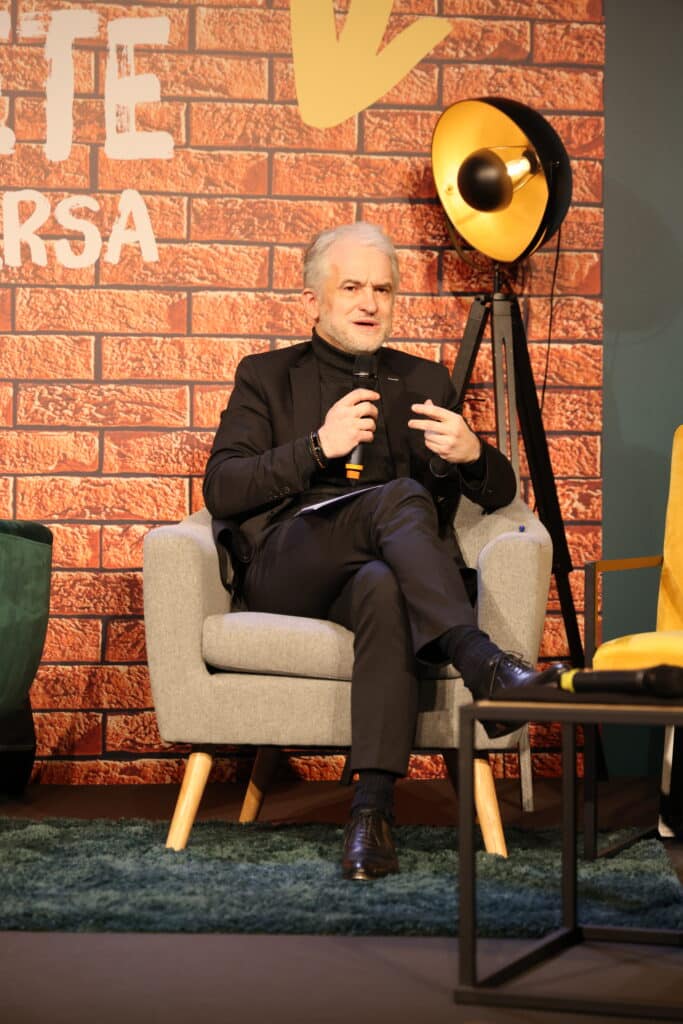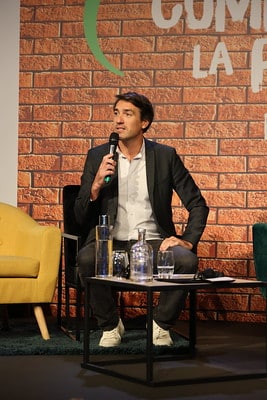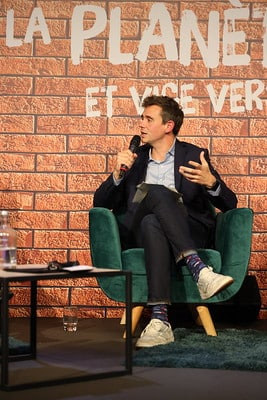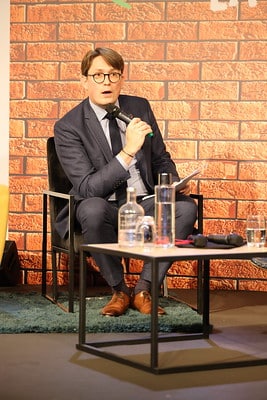The grand recap after half a decade
The first was coal and the telegraph; the second was oil, electricity and communications. Celebrating its fifth anniversary, the Third Industrial Revolution has become a beacon of hope and a newfound dynamic for progress. Undeniably, the summary of these last five years proves that the project is full of potential. For only in times of change are we able of gathering and creating solutions together, as well as implementing them.
The World Forum’s child prodigy
In 2012, Jeremy Rifkin was asked to put his theories into practice at the World Forum. Five years ago he presented, along with Philippe Vasseur, this great project called “REV3, the Third Industrial Revolution”. At the time, they did not know that the Nord-Pas-de-Calais would merge with Picardie into the Hauts De France, extending the reach of this philosophy.
1000 projects, 10 construction sites about hydrogen, circular econom and many more. The economist speaks about the Hauts-de-France region as « It’s been a real honour to work with the region for 4 years. Where there is a real sense of fraternity. Which puts theory into practice. It inspires other regions to go back home with a narrative that makes sense. »
Besides, seeing political and economic actors alongsides university presidents on stage is symbolic. These « worlds » are starting to reconnect. Third revolution, three generations willing to cooperate and move forwards together.
5 years through but many left to go
The economist came back on his masterclass with 1.500 students from the whole region and emphasised that the climate emergency is no longer rumour but a reality, causing multiples naturals catastrophes. His speech was deliberately directed at young adults aged 25 and under, for they can put Rifkin’s theories into practice and are those who can win the race against time.
“It is not only another political moment in history but a moment when we decide our future fate.”
We have to take a few moments tolook back onthepathtaken and totry to answerthat crucial question which is climate change. Above all else, we must understand and estimate the power of a whole new generation of actors. “The biggest problem with climate change is denial: ‘it’s business as usual’, ‘it is too late’. You cannot fail here. Let’s move now.” Jeremy Rifkin insisted upon its immediate urgency. “We must become aware that, in this flourishing planet, we can do this too”.
A European dynamic
To stimulate demand among European politicians, we must start by developing the offerby breakingdowna few barriers. It will then be of interest to present several propositions toopening thedoors of the political system.
Territories are places of innovation. They are stem cells, that one day will eventually spread to the entire body of society. Maro Sefcovic, a Slovak diplomat, showed his support and made a clear promise. The vice president of the European commission, running for presidency, what to lead a new commission to develop REV3 at a Continental level. It is the next stage on European Development.
The Commission has already proposed ten projects with a dual vision, both European and International. This demonstrates a vital interest in theregion and itseconomic viability, a compass thatguides us alongthe path of progress. For Jeremy Rifkin the 1000 projects are easily feasible if we work at a European level and with mindful governments. In addition, he implored governments to “Please let France lead Europe ».
Economic rendezvous
« We have a plan that will work. This REV3 is not rocket science, we know that if we involve region »
Unique to France, REV3 is expanding towards territories and to Europe first, then on a global scale. Individualprovincesand territories aremoving forwardwith their own approaches to developing targets. They are ready to guarantee this transition. The battle also takes place within mentality: when the concrete effects of these measures appear on the ground. Regarding employment and the economic reality, for Xavier Bertrand « it is necessary to know how to deliver ».
Patrice Vergriete talked about the « city of tomorrow » and its to ability to meet today’s challenges and prepare for the future, the Green Project is on its way. Dunkerque is working alongside the region for the decentralisation. Economic challenges within the transitions that the industries know – climate-related challenges, flood control, social exclusion – mostly concern them.
As Jeremy Rifkin declared, « We are the most social species on earth. In times of change we can gather, create and implement solutions ». Will your region be at the rendez-vous ?
Estelle Kammerer



